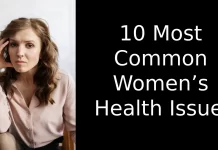A WHO Report Rings Alarm Bells: Preventing Hypertension for a Healthy Life
Introduction First WHO report details devastating impact of hypertension and ways to stop it
WHO says hypertension a silent killer. Do you know the signs?
Why High Blood Pressure is a “Silent Killer”
| “Urgent WHO Alert: Discover How to Safeguard Your Heart!” |
Hypertension, often referred to as high blood pressure, is a silent killer that affects one out of every three adults globally. The World Health Organisation (WHO) recently sounded the alarm bells on the enormous scale of the hypertension problem during the 78th Session of the United Nations General Assembly.
According to their first-ever report on the global impact of high blood pressure, it causes more deaths than other leading risk factors, including tobacco use and high blood sugar. However, the good news is that hypertension and its associated complications can be addressed. This article aims to provide you with valuable insights on how to prevent heart ailments and lead a healthy life by tackling hypertension head-on.
Understanding Hypertension
What is Hypertension
Hypertension, or high blood pressure, is a medical condition in which the force of blood against the walls of the arteries is consistently too high. It is often referred to as the “silent killer” because it rarely exhibits noticeable symptoms until it reaches a severe stage.
The Global Scale
The WHO report highlights the alarming global scale of hypertension, with one in three adults affected. This means millions of people are at risk of heart ailments and other health complications due to high blood pressure.
The Impact of Hypertension
Leading Cause of Death
The WHO report underscores that high blood pressure is a leading cause of death worldwide. It surpasses other major risk factors such as tobacco use and high blood sugar. This revelation is a wake-up call for individuals and healthcare systems alike.
Associated Health Risks
Hypertension isn’t just about elevated blood pressure readings. It’s also a precursor to several severe health issues, including heart attacks, strokes, kidney problems, and even cognitive decline.
Prevention and Management
Early Diagnosis
The Key to Prevention
Early diagnosis is the cornerstone of preventing hypertension-related complications. Regular check-ups and monitoring your blood pressure can help identify the condition in its early stages, allowing for timely intervention.
Lifestyle Modifications
Taking Control
One of the most effective ways to manage hypertension is through lifestyle changes. This includes adopting a balanced diet low in sodium, maintaining a healthy weight, exercising regularly, and reducing stress through relaxation techniques.
Medication
When Needed
In some cases, lifestyle changes alone may not be sufficient. Your healthcare provider may prescribe medication to help lower your blood pressure. It’s essential to follow your doctor’s recommendations diligently.
Certainly, let’s continue with the article on preventing hypertension for a healthy life.
Lifestyle Changes for Hypertension Prevention
Dietary Adjustments
Reducing Sodium Intake
One of the primary dietary factors contributing to hypertension is excessive sodium intake. High levels of sodium can lead to water retention and increased blood pressure. To prevent this, reduce your consumption of processed foods, fast food, and excessive salt in your meals. Opt for fresh, whole foods with lower sodium content.
Embracing a Heart-Healthy Diet
A heart-healthy diet can significantly reduce the risk of hypertension. This includes incorporating plenty of fruits, vegetables, whole grains, lean proteins, and healthy fats into your meals. Foods rich in potassium, such as bananas and spinach, can also help regulate blood pressure.
Maintaining a Healthy Weight
The Connection Between Weight and Blood Pressure
Being overweight or obese can strain your cardiovascular system, leading to high blood pressure. Losing even a modest amount of weight can have a profound impact on blood pressure levels. Aim for a balanced, calorie-controlled diet and regular exercise to achieve and maintain a healthy weight.
Regular Physical Activity
The Benefits of Exercise
Exercise is a powerful tool in hypertension prevention and management. Engaging in physical activity helps strengthen your heart, improve blood flow, and lower blood pressure. Aim for at least 150 minutes of moderate-intensity exercise per week, such as brisk walking, swimming, or cycling.
Stress Reduction Techniques
Chronic stress can contribute to hypertension. Incorporate stress-reduction techniques like yoga, meditation, deep breathing exercises, or hobbies that relax and rejuvenate you. Reducing stress can have a positive impact on your overall health and blood pressure.
Medication for Hypertension
When Medication is Necessary
Consultation with a Healthcare Provider
If lifestyle changes alone are insufficient to control your blood pressure, your healthcare provider may recommend medication. It’s crucial to consult with a healthcare professional before starting any medication. They will assess your specific condition and prescribe the most appropriate medication for you.
Common Medications
Diuretics
Diuretics, often referred to as water pills, help the body eliminate excess sodium and water, reducing blood volume and pressure. They are commonly prescribed as a first-line treatment for hypertension.
ACE Inhibitors
Angiotensin-converting enzyme (ACE) inhibitors relax blood vessels, making it easier for blood to flow. This reduces blood pressure and eases the workload on the heart.
Beta-Blockers
Beta-blockers slow the heart rate and decrease the force of heart contractions, reducing blood pressure. They are often prescribed for individuals with certain heart conditions in addition to hypertension.
In conclusion, preventing hypertension and leading a healthy life is not only possible but crucial for your overall well-being. The WHO report serves as a stark reminder of the global impact of high blood pressure. By understanding the condition, making lifestyle modifications, and seeking medical guidance when necessary, you can take control of your health and reduce the risks associated with hypertension.
Certainly, let’s continue exploring the topic of hypertension prevention and its importance for a healthy life.
Monitoring Blood Pressure at Home
Self-Monitoring
The Benefits of Home Monitoring
Regular monitoring of your blood pressure at home can provide valuable insights into your health. It allows you to track fluctuations and trends, making it easier to detect any potential issues early on.
Choosing a Home Blood Pressure Monitor
When selecting a home blood pressure monitor, opt for one that has been validated for accuracy. Your healthcare provider can recommend suitable models and provide guidance on how to use them correctly.
Dietary Supplements and Hypertension
Omega-3 Fatty Acids (H2)
Some dietary supplements, such as omega-3 fatty acids found in fish oil, have shown potential in lowering blood pressure. However, it’s essential to consult with your doctor before adding supplements to your routine, as they can interact with medications and have other health implications.
Hypertension in Special Populations
Hypertension in Pregnancy
Pregnant women can develop a condition known as gestational hypertension, which can be harmful to both the mother and the baby. Regular prenatal care and monitoring are crucial to managing hypertension during pregnancy.
Hypertension in Children
While hypertension is more common in adults, it can also affect children. It often goes undetected, so regular check-ups are essential for early diagnosis and management in pediatric cases.
The Role of Support and Education
Joining Support Groups
If you’re dealing with hypertension, consider joining support groups or communities where you can connect with others facing similar challenges. Sharing experiences and learning from others can be empowering and motivating.
Staying Informed
Stay informed about the latest developments in hypertension research and treatment options. Knowledge is a powerful tool in managing your health effectively.
Conclusion
In summary, hypertension is a global health concern that demands attention and action. The WHO’s report underscores its significance, but it also provides hope by highlighting that hypertension is preventable and manageable. By making informed choices, embracing a healthy lifestyle, and seeking medical guidance when needed, you can take control of your blood pressure and lead a healthier, happier life.
Remember that your health is a lifelong journey, and every positive change you make contributes to a brighter, hypertension-free future.
Frequently Asked Questions (FAQs)
- What is the significance of the WHO report on hypertension? The WHO report sheds light on the global scale of hypertension and its impact on public health. It emphasizes the need for early diagnosis and effective management.
- Can hypertension be prevented through lifestyle changes alone? In many cases, yes. Lifestyle modifications such as diet, exercise, and stress management can help prevent and manage hypertension. However, it’s essential to consult with a healthcare professional for personalized guidance.
- Are there any natural remedies for lowering blood pressure? While lifestyle changes are the primary approach, some natural remedies, such as consuming garlic, hibiscus tea, and practicing yoga, may complement conventional treatments. Always consult with your doctor before trying any natural remedies.
- How often should I check my blood pressure? It’s advisable to check your blood pressure regularly, especially if you have risk factors for hypertension. Your healthcare provider can recommend an appropriate monitoring schedule based on your individual health status.
- Where can I access more information on hypertension and its prevention? For more information on hypertension and prevention strategies, you can access valuable resources through reputable health organizations like the World Health Organisation (WHO) and the American Heart Association (AHA).
Remember, your health is your most valuable asset, and taking steps to prevent hypertension can lead to a longer, healthier life.






























